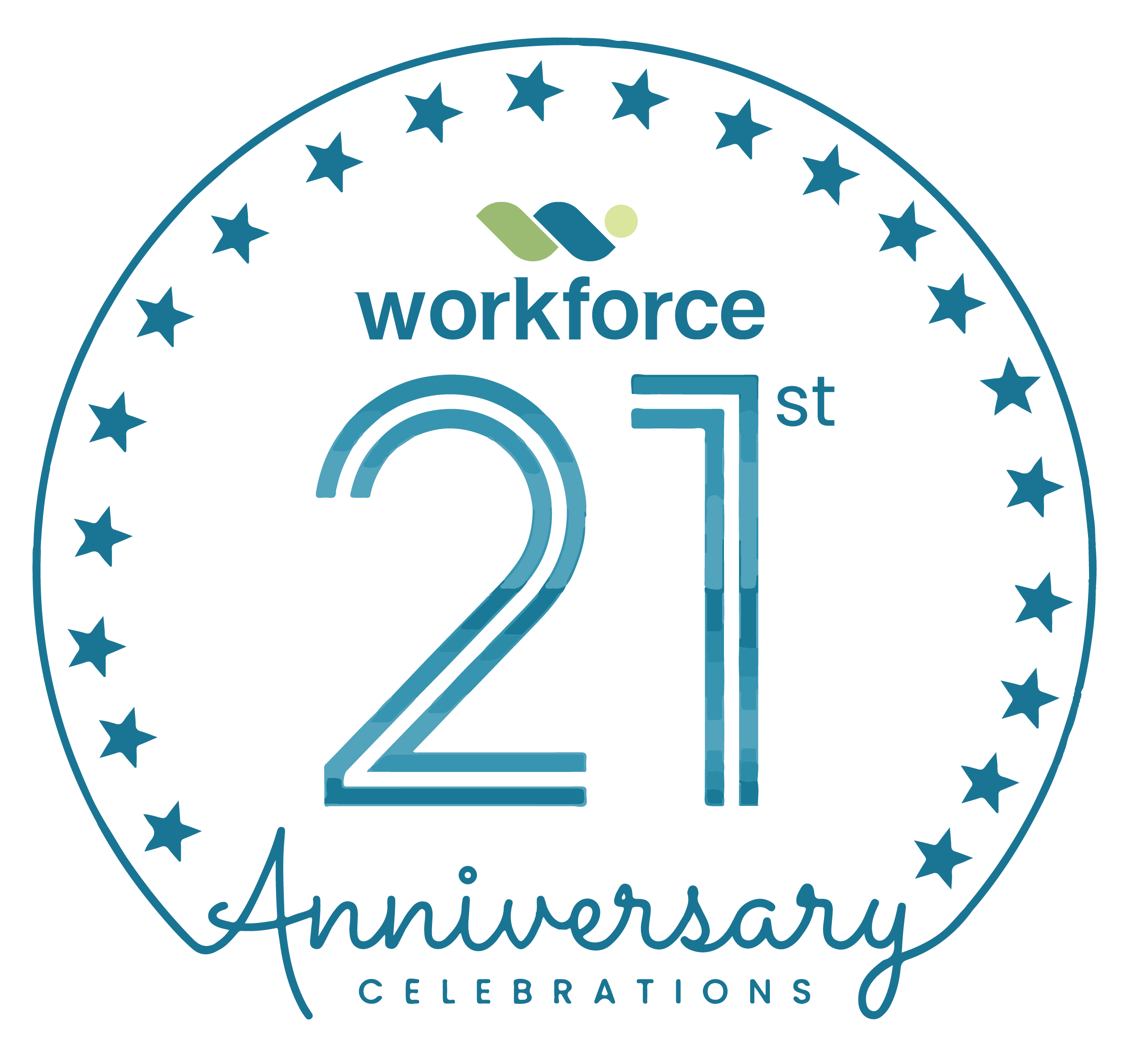“The greatest danger in times of turbulence is not the turbulence; it is to act with yesterday’s logic.” – Peter Drucker
Even in the best of times, identifying, developing, and retaining key talents for an organisation’s long-term success was never easy.
An overwhelming number of HR professionals and business leaders have repeatedly identified: attraction of skilled and professional workers, development of managerial capabilities, retention of high performers, succession pool depth, and shortage of management talent as the most critical challenges impacting their organisational strategy.
In trying periods such as we face now, what was once difficult, has now become complicated. And it goes without saying that the talent management terrain has undergone substantial changes. The dimensions of these changes are so intense that they have given rise to challenges that have completely altered the traditional way that recruitment and performance management is done.
As a staffing agency on the frontline of the talent war, we have spent nearly two decades sourcing, recruiting and managing thousands of talents. We have charted new terrains, innovated on-demand and solved knotty challenges to deliver on our promises to clients. And yet, with all our years of experience separating the wheat from the chaff and securing high-quality hands for our clients, we have never witnessed a talent landscape as complex as we have today.
The combined effect of economic crises, politically unstable environments, global competition, technological disruptions and an ongoing pandemic continue to drive this disturbing trend with no visible end in sight.
This article is intended to provide business leaders and decision-makers with in-depth insight into the present recruitment landscape in Nigeria and other West African regions. Consider it as the latest news from the battlefront of talent management.
Let’s begin.
But first, some positive news.
The Recruitment Landscape in West Africa: Opportunities
According to projections from the World Economic Forum, Africa will become the fastest-growing continent in the world because of its youthful population.
It is estimated that by 2050, Africa will have more young people than the rest of the world. The speculation that 40% of the world’s youth will be in Africa is very exciting, especially when one considers the potential value in positioning the continent as the next growth frontier of the world. This prediction has massive implications for human capital and human capacity development on the continent.
However, even though Africa will have more young people who can potentially transform the continent. If the right conditions for developing this population are neglected, they could end up exacerbating poverty and inequality while threatening the continent’s peace and prosperity. Therefore, this opportunity is still mostly speculative.
Recommended Post: 4 Signs Your candidate is Lying During Interview
The Recruitment Landscape in West Africa: Vulnerabilities and Threats
In our capacity as a leading recruitment firm and management consultant to some of the biggest organisations in Nigeria and neighbouring West African countries, these are the challenges we have observed first-hand and overtime in the course of our work:
The Employability Gap
While it is fantastic to have a large youthful population, the real question is: how many of them are actually and truly employable? The advantage of having a lot of young people is lost on us because as a result of the systemic breakdown of the educational system in Africa (especially in Nigeria and some of the West African countries), universities are consistently producing really average individuals who struggle on the job, especially on their first job. This is largely because some of the critical fundamentals are missing, e.g. effective writing skills, the ability to think critically and make analytical decisions. We see these gaps a lot.
To manage this challenge, we have had to make significant investments in assessment instruments that can effectively tease out and identify the individuals with the right skills to perform optimally on the job. For example, as an organisation, we would never hire people without first making sure that they go through our Communicative-Competence Assessment. Over time, we have seen that the assessment is highly effective in predicting capabilities and showing whether people can write or not. This becomes all the more important, considering that the ability to write is directly linked to the ability to think robustly, analyse, and make good decisions. This is a major mind-the-gap issue that organisations must be aware of. To get the best for our clients, we invest a disproportionate amount of time and resources in sifting through thousands lot of candidates.
The Brain-drain Issue
What began as a trickling out of qualified talent has now degenerated into a mass exodus of the best talents in Africa, especially in Nigeria, to other parts of the world. And this is creating a lot of problems for companies. One company we know of lost ten of their best hands in one department! Naturally, that threw the department into all manner of issues; and to date, almost two years later, the company is still struggling to staff that department and regain its footing. Presently, Nigeria ranks in the top 10 in terms of the number of skilled workers leaving for Canada over the past five years. In many cases, companies end up closing down entire departments to cope with these exits.
The Disappearance of Competent Middle Management Talent
A major fallout of the brain-drain problem is the loss of critical talent at the middle management cadre. Using a highly strategic and systematic process, developed countries have achieved massive success in targeting top talents from the middle management area, which is the driving force of any organisation and any economy. The middle management level is commonly thought of as the ‘’power engine of organisations’’ because managers at this level are the custodians of the culture, energy, drive, and competence (if they are competent) that runs the organisation.
Unfortunately, the point system employed by advanced countries is designed to attract talent at this cadre of management. The consequence of this is a lot of brain drain, which creates an imbalance in the system and causes severe problems at the top and the bottom of the organisation.
At the top, senior managers are now being dragged into operational/tactical issues. They are overstretched and struggling to be strategic because they don’t have the right support and adequate competent hands to man the organisation at the middle management level. What makes this trend most disturbing is that the point system used in selecting immigrants is designed to attract and absorb the best, leaving companies stuck with the averagely talented. Therefore, we are beginning to see the impact on senior managers who have become stressed out, frustrated and unproductive in their strategic roles.
We also seeing a management crisis at the bottom of the organisation, among the lower cadre officers. Considering that talent at the middle management cadre are responsible for training, developing, rallying and holding the troops at the lower level accountable, we are seeing a situation where the absence of competent middle managers is resulting in chaos everywhere, with people being severely undermanaged. In fact, what we are beginning to observe as the critical importance of the middle management cadre, is a phenomenon in management that was previously understated. Key players in management are now beginning to appreciate how essential the middle management cadre is and just how devastating its absence is on the entire organisation.
The Emergence of Professional Job Seekers
We are also witnessing the rise of a category of pseudo-talents whose only real competence is excelling at interviews and getting the job. These individuals have become highly proficient in hacking the interview process. They interview exceptionally well, know all the right things to say, present impressive information about the organisation, and literally blow the interviewer away. Unfortunately, they perform underwhelmingly when they get the job, leaving the HR professional/recruiting manager that hired them highly perplexed. They are able to do this because they get coached on how to pass and excel at interviews.
Recently, we interviewed a lady who was supposed to present her proposal to us via slides. In effect, she had gotten a consultant to work on the slides, and the consultant had done a fantastic job. But the lady gave herself away when she failed to defend 10% of the content on the slide. When we raised some questions about some points that were made on the slide, she began searching frantically for the section in the document that contained the information we inquired about. After she had spent several painful moments searching through the slide, we said, “you obviously worked on this with somebody else,’’ and she said yes. And, of course, we all know what that meant.
So, assuming we didn’t exercise due diligence, we would have been blown away by the slide’s quality and the thought process behind the structure, thinking that she was the right person for the job. When, in essence, she did not do a thing on the slide! And to make matters worse, she did not show enough diligence to master the slides, to be able to at least defend some of the points in it.
So, an alarming mind-the-gap issue in the African recruitment landscape is that people are becoming very smart at gaming the interview process. They put up a one-time performance, get on the job, and fall apart.
A good way to summarise this reality is with the quote: all that glitters is not gold. Some things are just shiny worthless objects. In curbing this dangerous trend, we have strengthened our recruitment process significantly to make sure that we don’t end up with professional job seekers.
The Challenge with Working from Home
For most people in Africa, working from home is an uphill task. Unlike the developed world, where people have one or two children and have enough room to maintain an office’s privacy, most Africans struggle to work from home. This is owing to the number of distractions that exist.
In this part of the world, you can have up to 6-10 people in a single household, and this makes it very difficult to have effective meetings remotely and to even get people to concentrate. On more than one occasion, when we had to have zoom meetings within our organisation or our clients’ organisation, we heard all sorts of noise from the background, including the wife screaming at the husband and the children shouting and playing loudly. Such meetings have ended up being less productive than in-person meetings. As a result, immediately after the lock-down, people started fighting and literally pushing to return to work, complaining that they had not been able to be productive.
In addition to the myriad of distractions, working from home continues to pose a challenge for in Africa because the power infrastructures are not there; the socio-economic systems are not in place; the internet is epileptic. People don’t have dedicated spaces to work quietly and effectively within their homes to ensure productivity.
The Challenge with Managers Struggling to Manage Remote Employees for Productivity and Performance
One manager lamented the futility of managing his team remotely when he said: “I wasn’t able to manage them effectively when they were right under my nose. If I couldn’t get them to perform at the level that I desired or get deliverables completed on time, how do I do it remotely?” So, it’s been a struggle. In response to this trend, we have invested in helping to develop line managers’ capabilities to manage employee for productivity and performance remotely.
The Recycling Of the Best Hands by Top Organisations in a Bid to Avoid Hiring Mistakes or Speculation
What we see very often now is that the few capable hands changing jobs frequently. In fact, we once saw a candidate move almost every six months to a different organisation- and these were really big organisations who are just desperate to get those hands. There is a worrisome recycling of talent going on, and there is no deliberate effort to invest in development to solve this problem. Organisations only want people that will resume and hit the ground running.
The ‘Grow your Talent’ Drive
In responding to the scarcity of ready-made talents, some organisations have begun to take the initiative to invest in graduate academies to build their future talent pipeline, with the hope of replenishing that missing middle management level. However, this comes with its challenges. Oftentimes, within 1-3 years after several of these graduates have been trained and developed, they start planning to relocate out of the country or change jobs and employers.
These are some of the major mind-the-gap challenges that we have seen with respect to talent management and recruitment in Nigeria and the West African region.
What Does This All Mean for Business and HR Leaders?
It means challenging core assumptions about how people enter the workforce and how they work together. It means putting proper infrastructures in place to screen, rescreen, and triple screen potential hires to avoid the shocks and losses that come with hiring mistakes. It means making very productive and clear-headed decisions about how best to manage talent. And finally, it means developing new strategic frameworks that allow your organisation to adjust to these changes instead of falling behind.
If the challenge of getting and keeping good hands lingered when the ‘grass was greener’, and a quality talent-base was the key to determining whether or not your organisation survives and thrives or whether it shrivels and dies. What then must your organisation do to navigate a path forward in this increasingly complex recruitment environment?
As a business leader and an hr professional, what is one critically important talent management decision that you must make to keep your business from sinking in this vuca milieu?
The definitive answers to these questions will largely depend on the current state of your organisation’s talent base, and we can help your organisation to begin to make sense of it all by starting out with a thorough diagnostic session.
At Workforce Group, we are fully committed to helping your organisation overcome these challenges. Our offerings and solutions are designed to ensure that these challenges do not become a bottleneck for you and that you get the expected ROI on your recruitment investments.
We have intensified our talent selection and assessment processes to ensure that they are rigorous and fail-proof. We have also gone out of our way to tweak our business model to create strategies, tools, plans and a methodology-based approach that ensures we help our clients mind these gaps in getting in the right people, at the right time, at the right locations, for the right cost to deliver on their goals and objectives as an organisation.
We live in uncertain times and today’s organisations are facing unprecedented pressures and decisions. The organisations that pivot first—and have the best talent—will undoubtedly gain a competitive advantage. Request to speak with one of our recruitment experts to get started with your talent sourcing and talent management projects, today.






